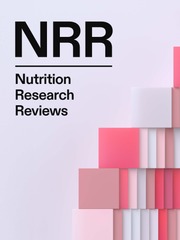Article contents
Ketogenic diets and the nervous system: a scoping review of neurological outcomes from nutritional ketosis in animal studies
Published online by Cambridge University Press: 28 June 2021
Abstract
Ketogenic diets have reported efficacy for neurological dysfunctions; however, there are limited published human clinical trials elucidating the mechanisms by which nutritional ketosis produces therapeutic effects. The purpose of this present study was to investigate animal models that report variations in nervous system function by changing from a standard animal diet to a ketogenic diet, synthesise these into broad themes, and compare these with mechanisms reported as targets in pain neuroscience to inform human chronic pain trials.
An electronic search of seven databases was conducted in July 2020. Two independent reviewers screened studies for eligibility, and descriptive outcomes relating to nervous system function were extracted for a thematic analysis, then synthesised into broad themes.
In total, 170 studies from eighteen different disease models were identified and grouped into fourteen broad themes: alterations in cellular energetics and metabolism, biochemical, cortical excitability, epigenetic regulation, mitochondrial function, neuroinflammation, neuroplasticity, neuroprotection, neurotransmitter function, nociception, redox balance, signalling pathways, synaptic transmission and vascular supply.
The mechanisms presented centred around the reduction of inflammation and oxidative stress as well as a reduction in nervous system excitability. Given the multiple potential mechanisms presented, it is likely that many of these are involved synergistically and undergo adaptive processes within the human body, and controlled animal models that limit the investigation to a particular pathway in isolation may reach differing conclusions. Attention is required when translating this information to human chronic pain populations owing to the limitations outlined from the animal research.
- Type
- Review Article
- Information
- Copyright
- © The Author(s), 2021. Published by Cambridge University Press on behalf of The Nutrition Society
References
- 8
- Cited by





